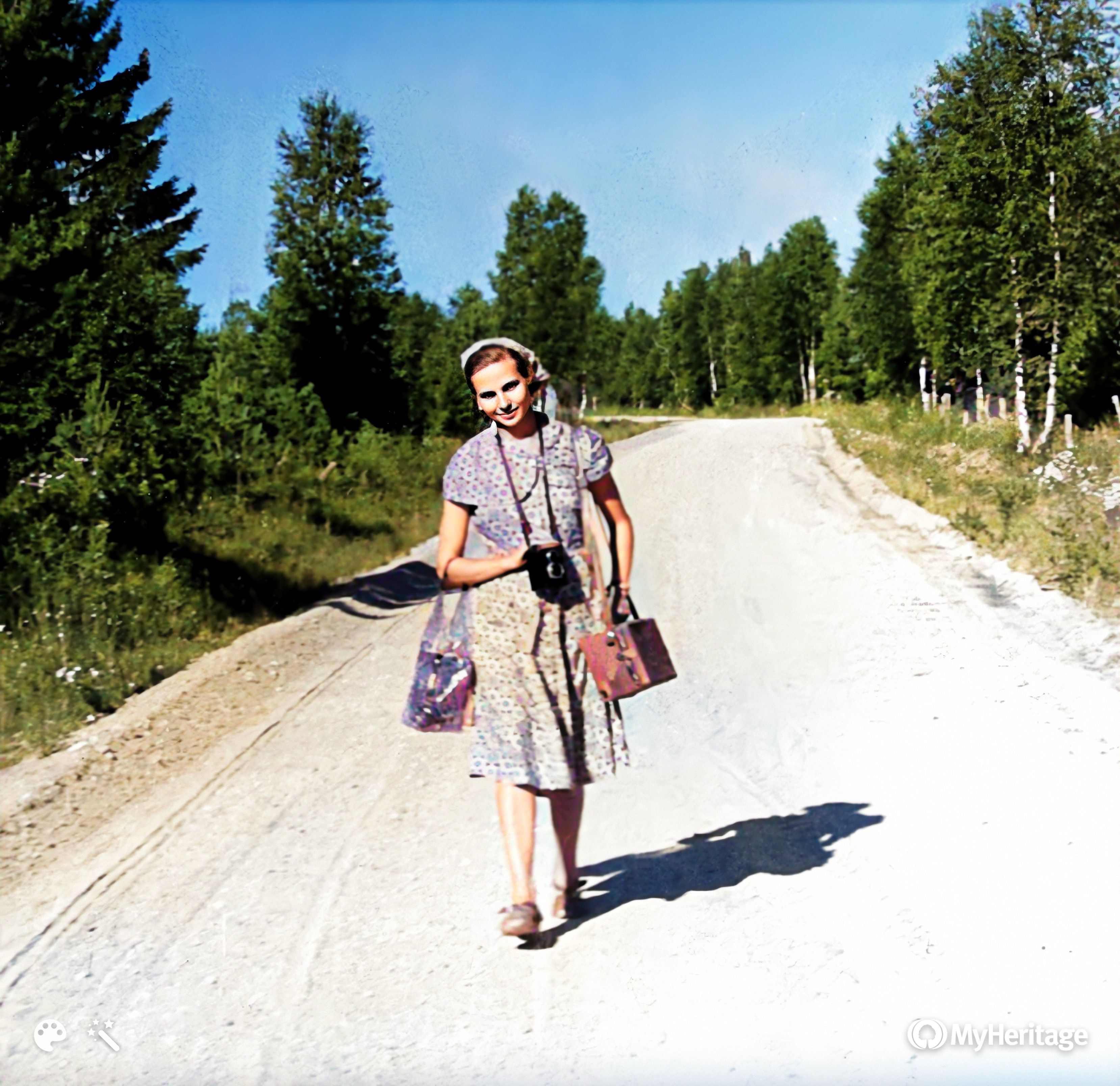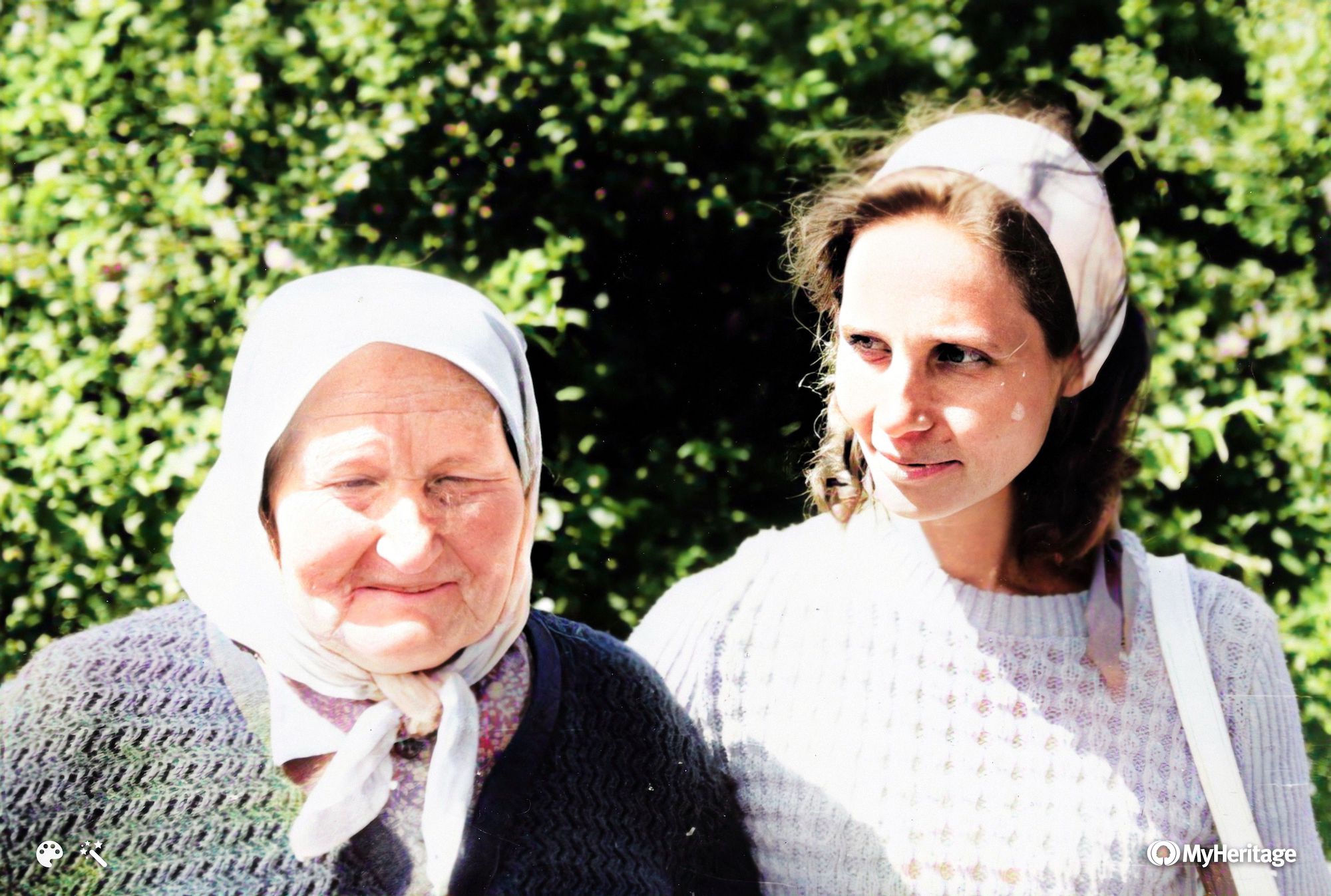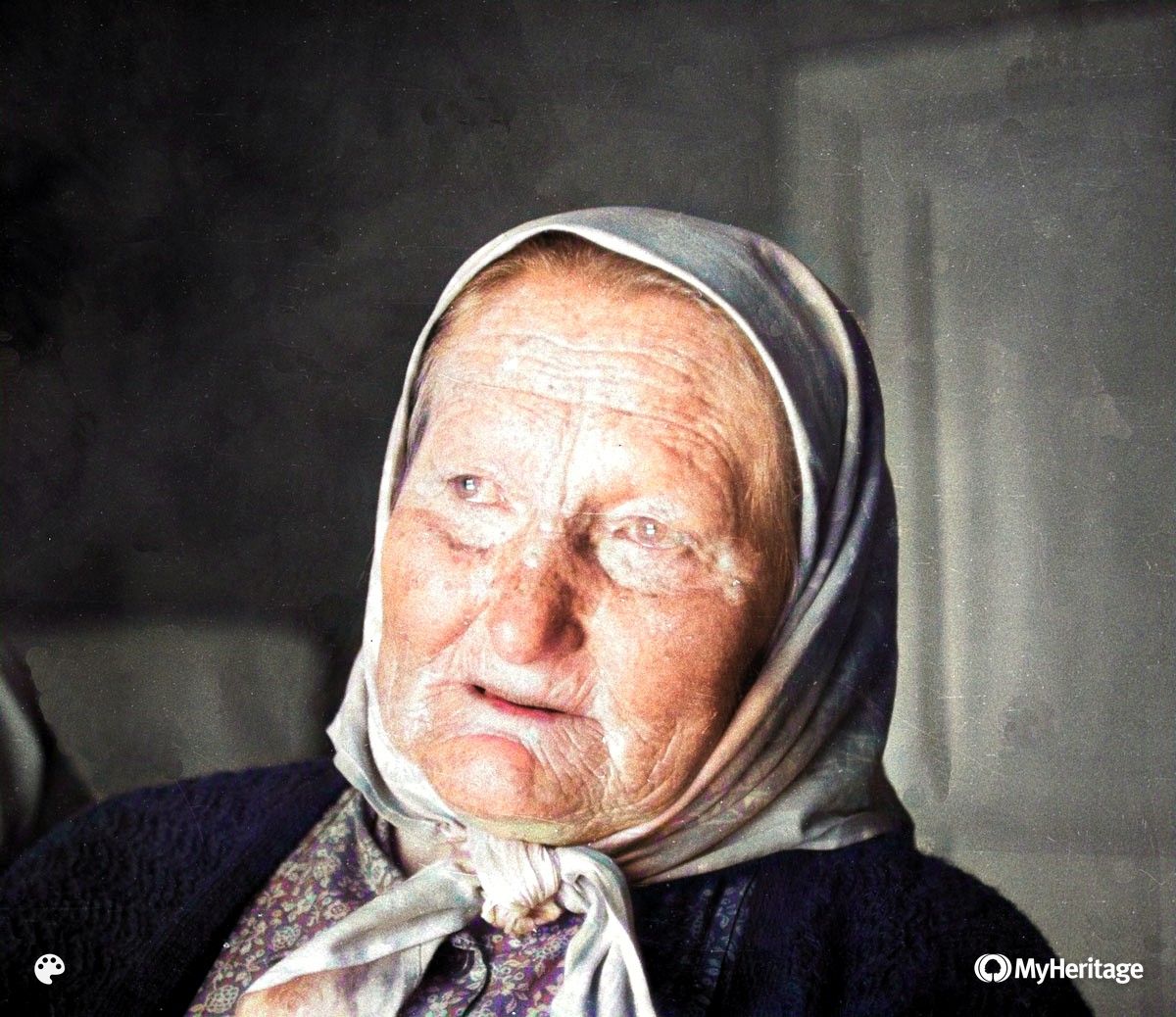Linnuk

"Äiutus" is a lullaby from the Estonian island of Kihnu.
While the majority of Estonian traditional songs were written down in the first half of the 20th century, by the time World War II had ended, the old strata of traditional songs had survived in only a few places. One such place was the island of Kihnu. The song "Äiutus" sung by a Kihnu singer, was recorded on tape recorder by Ottilie-Olga (Olli) Kõiva and Lilia Briedis during the expedition of the Estonian Literary Museum in 1959.
"Later, I visited the island of Kihnu a lot. There was still the live song tradition to be heard and to be transcribed."
Ottilie-Olga Kõiva
Olli Kõiva became an outstanding Estonian folklorist, collector and popularizer of folklore. For a long time she was also the head of the Folklore Department (now the Estonian Folklore Archives) of the Estonian Literary Museum. She has studied Kihnu's runic songs and singers in depth. In 1965, she defended the dissertation of candidate in philology (Ph.D.) on the subject "The Tradition of the Runic Folk Song on the Island of Kihnu" as well as edited a collection dedicated to Kihnu songs, the Vana Kannel VII (1997).

At that time, there was an active ongoing debate about who should be considered a traditional folk-singer (laulik in Estonian) at all. Anyone who sings along or repeats/sings the songs they have heard cannot be qualified as a folk-singer. In 1964, Kõiva published a research paper titled "On Kihnu’s traditional singers". There, Kõiva defined four conditions for a traditional singer: she/he is an active user (performer) of songs, mastering all components of the song – the melody, the words, performance practices (creator), while being proficient in using traditional forms and finished details (improviser), as well as being recognized by the community.
Anna Köster was one of the approximately ten traditional folk-singers present at Kihnu at that time who also passed us on the recording of "Äiutus".

Anna Köster, or Suaru Anni (1899–1989) from Kihnu, has the following small description dedicated to her in the Anthology of Estonian Traditional Music: "She spent all her life in the village of Lemsi in Kihnu. In her youth, the girls mostly sang [what we call] the newer strata of traditional songs while making handicrafts, and Anna Köster has also created verses in this style herself, describing the beauty of the nature around her home. Anna had had been thoughtful and modest by nature. Runic songs had been repeatedly recorded from her in the post-World War II period. Among the 49 different songs recorded, there are many wedding songs, as well as spells meant to help along with household chores and children's songs passed down in the family tradition."
Anna Köster and Kihnu Virve (Virve Köster), widely known today, were great friends. Kihnu Virve told Sulev that "Anna was very warm and helpful. She went to church, sang at weddings, was very sociable, never spoke ill of others - a very nice person."
On September 7, 1959, during a busy potato harvest when the Äiutus song was recorded from Anna Köster, Ottilie Kõiva wrote in her diary: "We went to see Saaru Anni in Lemsiküla village. Luckily, we found her at home. There were tenants there with Anni. We were looking for a sheltered place outside to make the recording and chat. Anni wants to do everything very thoroughly and properly. If she doesn't remember something exactly, she insists many times that we shouldn't write it down. Her voice is clean and clear. The recording went well. It is a pity that she rushed back to work." (source reference RKM II 56, 483)
The recording by Anne Köster has also been published in the Anthology of Estonian Traditional Music compiled by Ottilie Kõiva, Herbert and Erna Tampere under the title "Sleep, come to the eye!" (1970). The digitized anthology is available here.
From Kihnu museum: "During the Soviet era, workers, accountants and other officials from the mainland were brought in to Kihnu to work in the smoked fish industry. They lived near the port. Since they did not own a cow, everyone went to Suaru Ann for milk, who kept a cow at the end of the harbor. She was also babysitting the children of those who came from the mainland. It is believed that she sang lullabies for all of them as well."

As mentioned above, Ottilie Kõiva (born 1932) has made a great contribution to the collection and research of Estonian traditional music. In 2022, she celebrated her 90th birthday. Despite her advanced age, she is active to this day. In addition to the island of Kihnu where she often went on research trips with the folklorist Ingrid Rüütel, she has also thoroughly researched her native region of Peetri and Anna. Only last year (2021), a major 997-page scientific publication "Vana Kannel XIV. Peetri regilaulud" compiled by Janika Oras, Ottilie Kõiva and Kanni Labi, was published.
In 2021, Olli Kõiva was awarded the Lifetime Achievement Award in the field of traditional culture for her fruitful work as a folklorist, as an introducer and keeper of traditional culture.
Lauri Õunapuu talks in a fascinating manner about Estonian lullabies in the Regilaulu podcast, using the same song from Anna Köster as one example. In the podcast, it is sung by Maria Michelson from Kihnu.
We came to know the song probably through the version by Collage, "Sleep, come onto the eye", from their 1974 album Kadriko. The album was reissued in 2002 on their Best of 1970-76 CD. By the way, as part of her undergraduate studies programme, Helen made a radio news/interview clip about this record in the classical radio channel Klassikaraadio.
The recording made by Ottilie Kõiva is the basis of the Collage version, also available on YouTube:
We started to like the song from hearing the version by Collage. Before recording our own version, Sulev had sung it to his children for 5-6 years.
The vocals of "Äiutus" were recorded in the summer of 2019 in one take after which it took a long wait for the song to find its final form. One year later, Sulev came up with the idea of an electronic instrumental part which was ready in a couple of hours and became the basis of the final version of the song.

Performed by:
Helen Saarniit (vocals)
Sulev Reisberg (vocals, instrumentals)
Arrangement/mix:
Sulev Reisberg
Mastering:
Allan Kasuk
Released in:
2022
Research by:
Sulev Reisberg
Translation by:
Helen Saarniit